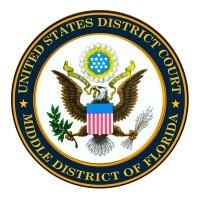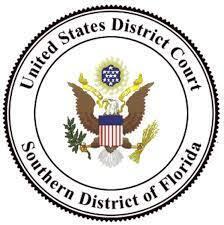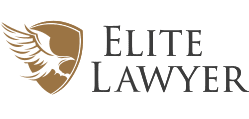What Is Confidentiality?
The Legal Obligations of Lawyers to Maintain Client Confidentiality
Confidentiality is a vital element that upholds the very foundation of the relationship between an attorney and their client. It is a promise, a commitment that an attorney will keep the information shared by a client in strict confidence. This assurance of secrecy allows clients to be candid, sharing intimate details that may be vital to their case without fear of disclosure.
Confidentiality is more than a duty; it is a protective shield, ensuring the trust, respect, and integrity that is vital for a successful attorney-client relationship. Especially in sensitive areas like family law, confidentiality takes on an even deeper significance. It safeguards not just secrets, but also lives, reputations, and futures.
If you are dealing with family law matters, you need a lawyer who respects the gravity of confidentiality, one that not just promises, but honors the seal of secrecy. That is where we come in.
At Miami Family Law Group, PLLC, your confidentiality is our utmost priority. We understand the sensitive nature of family law issues, and we are committed to preserving your privacy and rights throughout the legal process.
Reach out to us today at 305-520-7874. Let us provide the secure and compassionate legal counsel you deserve. Do not walk through this alone; let us be your trusted ally, where your secrets are safe, and your rights are protected.
Confidentiality and the Attorney-Client Relationship
The attorney-client relationship is a cornerstone of the legal profession. This relationship is built on trust, and confidentiality is instrumental in fostering this trust. The importance of maintaining confidentiality cannot be overstated, as it directly impacts the effectiveness of legal representation. Without the assurance of confidentiality, clients might hesitate to share critical information, fearing exposure or misuse. This could compromise their legal positions or the effectiveness of their attorney's representation.
The rule of confidentiality applies to all communication between a client and their attorney. It includes oral discussions, written correspondence, emails, and text messages. This rule remains intact even if the legal representation ends or if the client decides to hire a different attorney.
The scope of attorney-client confidentiality extends beyond the attorney. All members of a law firm, including paralegals, legal assistants, and administrative staff, are obligated to uphold client confidentiality. This broad scope ensures the privacy of the client's information across all levels of a legal practice.
The Importance of Confidentiality
The goal of this privilege is to promote open and honest communication between attorneys and their clients. This openness is essential for lawyers to provide the best possible advice and effectively represent their clients. It allows clients to feel secure in the knowledge that they can reveal all necessary details relevant to their case, even those that might be damaging or embarrassing, without the fear of these details being disclosed.
In the realm of family law, where deeply personal matters are often at stake, the importance of confidentiality becomes even more pronounced. Whether it is a contentious divorce, a child custody dispute, or negotiations for spousal support, these situations demand the highest level of discretion. The intimate nature of the information shared in these cases necessitates a strict adherence to the principle of confidentiality.
The Duration of Confidentiality
Another critical aspect of confidentiality is its duration. The duty of confidentiality extends indefinitely, even after the attorney-client relationship has ended or if the client passes away. This means that your attorney is obligated to keep your secrets, even after death, unless an exception to the rule applies.
This enduring obligation underscores the deep trust placed in attorneys and the legal profession's commitment to protecting client privacy. It provides assurance that sensitive information disclosed to an attorney will remain confidential, not only during the representation, but also long after it ends.
Exceptions to Confidentiality
It is crucial to understand that while the principle of confidentiality is robust, it is not absolute. There are certain circumstances where an attorney might be legally required to break confidentiality. Knowing the scope and limitations of confidentiality can help clients better understand their rights and what they can expect from their legal counsel.
- Client Consent - If a client consents to disclosure, an attorney can share the relevant information. This consent might be explicit, or it may be implied by the client's actions.
- Preventing Harm - An attorney may breach confidentiality if they believe it is necessary to prevent a client from committing a crime that could cause substantial harm or death.
- Legal Proceedings - If a lawyer's conduct is in question, such as in a malpractice lawsuit or disciplinary hearing, they may disclose confidential information to defend themselves. Additionally, in some cases, a court order may compel an attorney to reveal certain information.
- Disputes Between Client and Attorney - If a dispute arises between the attorney and the client over fees or other issues, the attorney may disclose confidential information relevant to the resolution of the dispute.
These exceptions serve to balance the client's privacy with broader societal and ethical concerns. While the principle of confidentiality is crucial, it is not intended to shield illegal activities or to impede the administration of justice.
Breaches of Confidentiality and Recourse
A breach of confidentiality can have severe consequences. For the client, it can lead to loss of privacy, damage to their case, and other potential harms. For the attorney, it can result in disciplinary action, disbarment, and potential civil liability for any harm caused by the breach.
If a client suspects their attorney has breached their duty of confidentiality, they may have several options. They can report the attorney to the state bar, which can investigate the matter and impose sanctions if the attorney is found to have violated their ethical obligations. In some cases, the client may also be able to sue the attorney for malpractice.
Moreover, in some instances, a court may disqualify an attorney from a case if a breach of confidentiality could potentially harm the other party. This is to ensure the fairness of the legal process.
Navigating such a complex issue requires sound legal advice and counsel. As always, it is important to select an attorney who understands the gravity of confidentiality and adheres to the highest ethical standards.
Confidentiality at Miami Family Law Group, PLLC
At Miami Family Law Group, PLLC, we take confidentiality seriously. We understand the sensitive nature of the information our clients entrust us with, and we are dedicated to protecting and respecting that trust at all times.
- Rigorous Procedures -Our team follows rigorous procedures to ensure that all client information is stored securely and accessed only by authorized personnel. Our case management systems are encrypted, and we follow the best practices of cybersecurity to prevent any unauthorized access to our client data.
- Extensive Training - All our staff members, from attorneys to administrative personnel, receive regular training in confidentiality protocols. This helps reinforce the importance of respecting client confidentiality and ensures everyone is up-to-date with the latest legal and ethical standards.
- Secure Channels of Communication - When it comes to communication, we prioritize secure channels and encourage our clients to do the same. We understand that the topics discussed in our cases are often highly personal, and we go to great lengths to provide a safe and confidential environment for these discussions.
- Experienced Litigators - In court, we diligently protect our clients' rights to confidentiality. Our attorneys are experienced in arguing for the protection of sensitive information, and we will work tirelessly to prevent any unnecessary disclosures.
At Miami Family Law Group, PLLC, your confidentiality is our commitment. Trust us with your family law matters and experience the peace of mind that comes with knowing your case is in safe hands.
Contact an Experienced Miami, Florida Family Law Attorney
Confidentiality is not just a legal mandate, but it is also a critical element of trust in the attorney-client relationship. Understanding the principles of confidentiality and the steps that law firms like Miami Family Law Group, PLLC take to protect your information is essential to feeling secure in your legal proceedings.
Whether you are dealing with a family law matter such as divorce, child custody, or property division, you need to know that your private details are protected. At Miami Family Law Group, PLLC, we honor that trust with robust confidentiality protocols, consistent staff training, secure communication channels, and fervent courtroom advocacy.
We appreciate the trust you place in us, and we are committed to preserving your confidentiality and protecting your rights. In the complex, often stressful world of family law, having an attorney you can trust makes all the difference.
For legal representation that respects and prioritizes your confidentiality, reach out to Miami Family Law Group, PLLC. Let us guide and represent you through your family law matter with the commitment to confidentiality you deserve.
Contact us today at 305-520-7874 for a consultation.
Contact Miami Family Law Group, PLLC
Our attorneys are ready to help address your legal needs. Schedule an appointment by calling 305-520-7874 or contacting us online.










